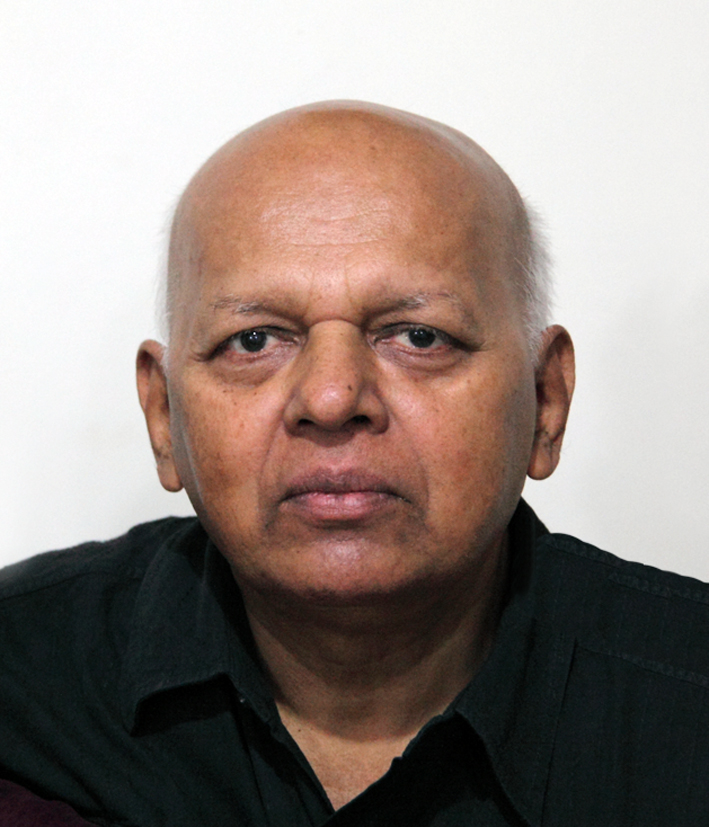New Telecommunications Law Unonstitutional!
By M.Y.Siddiqui
The Telecommunications Act, 2023, enacted by the Parliament without public scrutiny, debates and discussions amidst suspension of about 150 Members of Parliament, is anti-people, undemocratic and unconstitutional. It assaults the Constitution in so many ways. It attacks fundamental rights of the people in terms of their right to privacy, freedom of expression and press freedom.by the British and early independent India by subsuming and repealing them. The three old laws repealed are, the Indian Telegraph Act, 1885, the Wireless Telegraph Act, 1933, and the Telegraph Wires (Unlawful Possession) Act, 1950. The new telecommunications law has been enforced with effect from June 26, 2024.
The Act intends to implement several fundamental changes to the telecom industry’s current regulatory protocols including the implementation of strict requirements for user authentication, clarification of spectrum allocation and streamlining of the licensing process. It infringes user’s rights and infringes them. The law does not provide for restructuring of the telecom industry. To the dismay of the people, the Act increases the government’s unbridled power to order Internet shut downs, imperils encryption, a crucial barrier to privacy and freedom of speech and strengthens monitoring without external review. The Act therefore needs to be repealed and revised to address these shortcomings as it poses a serious threat to democracy, individual liberty and the integrity of the Internet as such.
The law is authoritarian in line with the fascist’s whims and fancies. It gives the authority to the government to intercept messages and reveal them in a intelligent format without giving the encrypted messaging services any leeway. The inalienable feature of end-to-end encrypted platforms with an assurance that messages in any format be only seen by the sender and intended recipient(s), including the service providers, is seriously threatened by this law. The requirements of the law may cause secure services to decide not to operate in India, which would undermine people’s freedom of speech, privacy and press freedom in light of the growing cyber attacks and surveillance. Any alteration made to the design of encrypted platforms just to provide access may result in security holes that might be used by a variety of entities to carry out indiscriminate spying. This will help compromise Internet safety to weaken online safety and cyber resilience for individuals, businesses and governments.
India has witnessed the highest number of Internet shutdowns for five years in a row under the RSS Pariwar union government. In place of restructuring the system to avert disconnection to avoid the consequential impairment of rights and liberties, the Act solidifies existing authorities to halt telecommunication services devoid of oversight. The government cements the Internet suspension power with the Department concerned under Clause 20(2)(b) of the Telecom Act, 2023. In the process it misses majorly missing the procedural safeguards as directed by the Supreme Court of India in Anuradha Bhasin Vs Union of India and the Standing Committee of Parliament on Information Technology in its report. However, Internet shutdowns are inherently disproportionate and must not be perpetuated. A former UN High Commissioner for Human Rights aptly stated that when a state shuts down the Internet, both people and economies suffer.
The country’s telecom laws have been abused historically to spy on gadgets of the people and to block the Internet access. The democratization of Internet communication services and the extension of monitoring and suspension of powers from traditional broadcasting services would destroy user rights and democratic liberties beyond repair. People therefore are concerned and perplexed about the Telecom Act 2023 and its applicability to Internet services because of its definitional uncertainty. In K.S.Puttaswamy Vs Union of India, the Supreme Court affirmed that the right to privacy is an inherent part of the right to life and personal liberty under Article 21 of the Constitution of India. The implementation of Section 200f of the Act, if not done proportionately, will amount to infringe the right to privacy of the individuals as guaranteed under the Constitution of India.
The citizens’ fundamental rights are seriously threatened by these arbitrary powers of the Union and state governments. The passage of the proposed Broadcasting Bill, Post Offices Bill, Digital Personal Data Protection Act, Criminal Procedure Identification Act, IT Rules 2021, and Telecommunications Act have jeopardized the digital space of the people with unbridled draconian power conferred on the Union and states. The Act has sparked heated debates over its likely impact on privacy, civil liberties and democratic values, its compliance with constitutional provisions and global human rights standards, its impact on individuals, businesses and agencies. The Act militates against the constitutional frame violating fundamental rights guaranteed by the Constitution under Articles 21, 19, and 14 respectively, right to privacy, freedom of speech and expression and protection against arbitrary conduct. In addition, the Act gives the government the power to enforce encryption standards and data processing without clear restrictions, leaving ambiguity and confusion among service providers.
The Act also fails to comply with international human rights standards, set by the International Covenant on Civil and Political Rights (ICCPR) to which India is a signatory, with a commitment to uphold rights to privacy, freedom of expression and access to information. Besides, the Act’s guarantee of verifiable biometric based identification has raised public concerns over the mandatory Aadhar-to-mobile linking, already ruled by the Supreme Court of India as illegal. This clause is devoid of protection in many ways for our country still fundamentally digitally poor. The Act imposes severe penalties for breaching the regulations. First penalty is rupees 25,000 followed by rupees 50,000 for each subsequent violation of the law. This will hamper the growth of digital literacy, which is very low at present, in the country. Another danger lurking is authorities may force consumers while imposing penalties to use Aadhar without their consent, a naked assault on their privacy.
The Act also provides for spectrum allocations between the requirement for auctions and administrative allocation in certain cases, a window for corruption. The Supreme Court’s decision on spectrum distribution would be examined. It is noteworthy that the sole use of administrative approvals for spectrum allocation may result in illicit allocations and fraudulent schemes that lack due process. The country’s telecom regulations have historically been used to limit Internet access and conduct gadget surveillance. These rules reflect evolving new and emerging technologies. The democratization of Internet communication platforms together with the widening of surveillance and censorship capabilities from conventional broadcasting services, threatens to damage irreparably human rights and democratic freedoms.
The Telecommunications Act 2023, in view of the changed scenario of a coalition NDA union government, needs to be relooked and amended based on consultations with the stakeholders to include inclusivity and to restore democratic rights of the people in keeping with the letter and spirit of the Constitution of India, to uphold fundamental rights, to safeguard encryption, to ensure privacy and security as also unobstructed access to a free and secure Internet. Without substantial revision in the law, India risks losing democracy and rule of law based constitutional democratic governance. Besides, a substantive amendment in the law would go a long way in restoring the faith of Indians in democracy and people’s sovereignty from the existing electoral autocracy where the fascist dictator is treating the people as subject for repressions and oppression, witnessed during the last decade!
Powered by Froala Editor




LEAVE A REPLY